#christopher vogler
Explore tagged Tumblr posts
Text

Every villain is the hero of their own story.
#quote by ->#christopher vogler#i feel like we dont talk about geto getting kicked in the head by toji enough#i feel like we really should.#nah that was actually just a solid face kick . like full disregard for the face#anime#jjk#jujutsu kaisen#jjk memes#jjk edit#anime memes#geto suguru#suguru geto#jjk hidden inventory#jjk premature death#jjk s2#mayo headers
38 notes
·
View notes
Text

Damn this book has good questions
#also has excellent examples to better understand the different stages#the writer’s journey#christopher vogler
7 notes
·
View notes
Text
Another aspect of the Elixir is that the wisdom which heroes bring back with them may be so powerful that it forces change not only in them, but also those around them. The whole world is altered and the consequences spread far. There is a beautiful image for this in Excalibur. When Percival brings the Grail back to the ailing Arthur, the King revives and rides out with his knights again. They are so filled with new life that flowers burst into bloom at their passing. They are a living Elixir, whose mere presence renews nature.
Christopher Vogler, The Writer's Journey
2 notes
·
View notes
Text
Knives Out
Cover your tracks, prepare your alibi, and get ready to stare into the donut hole. This is the hero’s journey of Knives Out. Side Quests Elixirs Dan’s Elixir: Whodunnit 2 oz. Blood orange soda 1.5 oz. Cointreau 0.5 oz. Fresh lemon juice 2 oz. Tonic water Build in glass, combining all ingredients with ice and stirring gently. Jeff’s Elixir: Vigilance Sauvignon Blanc
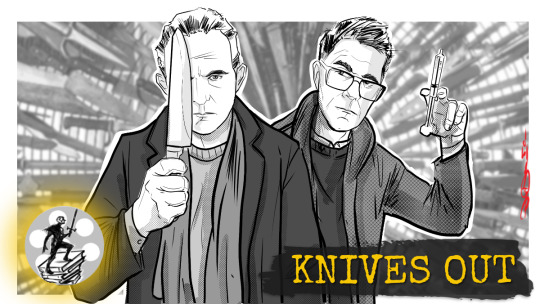
View On WordPress
#christopher vogler#film#films#hero’s journey#joseph campbell#monomyth#movies#mythology#story structure
2 notes
·
View notes
Text
this is music to my ears <3
thanks again to @wellofdean who was the fisrt who kindly shared with me a lot of brilliant resources about this topic!
I'll forever be here, alone in my corner, talking about this topic since my sister (who's a screenwriter) and I can never seem to agree on it. Or, in other words, until she concedes that I'm right and I can tell her "I told you so" (my fav sentence ever).
However, I gotta admit, compared to the article's main thesis, I find more interesting its opposite, underlying question: why are people still so enamoured with this concept? Why do a movie from the 70s and twos books written, respectively, in the 40s and 90s still have such a thrall on people in 2024? Why can't we let go of them?
The answer can and maybe just is: money. The structure seems to work, people seem to love it so let's just keep doing more of the same. And yet, I ask again: why do we love it? Why do we want more of it? Do we really love it and want more of it or it's just what's offered to us? So here we go again: why are they offering us only this flavor of "food" and we agree to keep feeding off of it? Much to think about!
For those of us who got desperately tired of (for a while) seeing every pitched screenplay jammed into the Procrustean bed of monomyth and then having to watch it get pieces chopped off it until it fit, this comes as a breath of fresh air...
2K notes
·
View notes
Text
The hidden shapes in stories and why drama isn't what you think it is - interview with @EHeathRobinson
This is a massive headline, I know. A massive headline for a massive and far-ranging conversation about storytelling. My host is Heath Robinson, whose YouTube channel has seen a stellar line-up of story nerds, including Christopher Vogler, author of The Writer’s Journey, Christopher Vogler, Matt Bird, author of The Secrets of Story, John Truby, author of The Anatomy of Genres, and Vic Mignogna,…
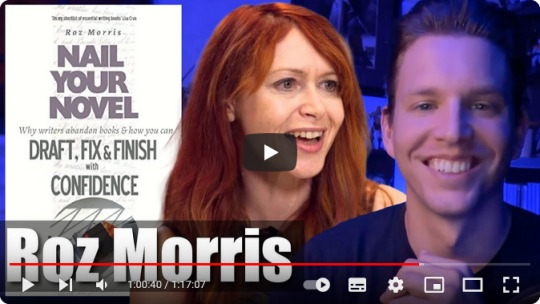
View On WordPress
#boring plots#character from plot#character or plot#Christopher Vogler#Conflict#drama#Heath Robinson#how to write a better book#how to write a better novel#how to write drama#interview#interviews#John Truby#Pixar#plot points#plot structure#plot twists#posts on audio and video#story structure#storytelling#Table Talk
0 notes
Text
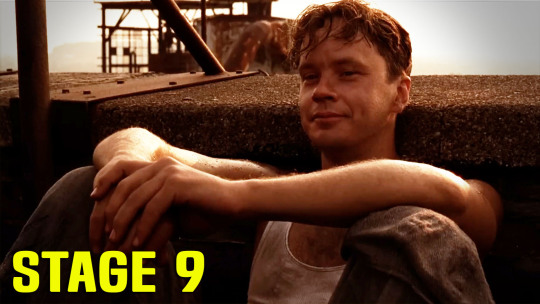
12 Stages Of The Hero's Journey (Narrated By Christopher Vogler)
Watch the video on Youtube here.
#fiction#writing#how to write#telling a story#storytelling#story#authors on tumblr#writers on tumblr#screenwriting#hero's journey#christopher vogler#writers journey#writing advice#writing tips#writing resources#writing motivation#writing help#writers life#writer stuff#writing problems#scriptwriting#novel writing#creative writing#writeblr#writerscommunity#writers of tumblr#writer things#writing community
0 notes
Photo
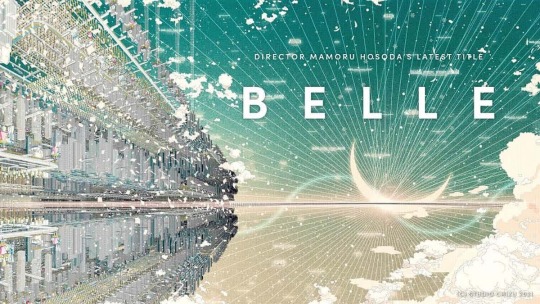
(via BELLE)
Un viaggio tra il mondo reale e quello virtuale, che porta la protagonista ad affrontare il viaggio dell'eroe. Un viaggio che ha solo due possibilità: o diventi un eroe o "muori".
#anime#belle#christopher vogler#diversamente intelligente#drama universe#diamanta#fantascienza#fantasy#film#mamoru hosoda#netflix#recensioni#ryuu to sobakasu no hime#studio chizu#viaggio dell'eroe
1 note
·
View note
Text
it's honestly kinda funny the way they are seething with desperation to create a foil for a character who already has one in Wilson.
It's like, (RSL in Wilson getup is right there this entire time) writers: hhhuuuuugggghaaaaaaaaaaagh this is so hard! What's a foil for House? He's a bitter skinny white academic, so.. a jovial fat black businessman? No? Okay, uh.. so, running healthcare like a business, that's a cultural touchstone, make the businessman into that kind of dude maybe? No? Okay so, what if his sole motivation was to humiliate House? Yeah that's a bit empty isn't it. Okay, okay.. fuck. Right okay, so, it's a Sherlock adaptation.. so a real detective? And the inciting incident is House's own casual cruelty? Would that work? Make sure he says House lines so everyone knows he's a dark mirror or some such. Wait, we just made another character whose sole motivation is to humiliate and immiserate House? Damn. Damn. How can we possibly stop doing that. It's not like anyone can be your narrative foil and wish you well.. (Hugh Laurie and RSL are having a watergun fight on set at this point)
House was so much better once they stopped trying to give it arc villains lol
16 notes
·
View notes
Text







Deep End (1970) Jerzy Skolimowski
July 25th 2024
#deep end#1970#jerzy skolimowski#john moulder-brown#jane asher#christopher sandford#karl michael vogler#louise martini#erica beer#diana dors#starting out
4 notes
·
View notes
Text
The Hero's Journey (Christopher Vogler)

Heroes are introduced in the ORDINARY WORLD, where
they receive the CALL TO ADVENTURE.
They are RELUCTANT at first or REFUSE THE CALL, but
are encouraged by a MENTOR to
CROSS THE FIRST THRESHOLD and enter the Special World, where
they encounter TESTS, ALLIES, AND ENEMIES.
They APPROACH THE INMOST CAVE, crossing a second threshold
where they endure the ORDEAL.
They take possession of their REWARD and
are pursued on THE ROAD BACK to the Ordinary World.
They cross the third threshold, experience a RESURRECTION, and are transformed by the experience.
They RETURN WITH THE ELIXIR, a boon or treasure to benefit the Ordinary World
The Hero's Journey Model:


In psychological terms this stage represents the resolve of the hero to return to the Ordinary World and implement the lessons learned in the Special World.
This can be far from easy. The hero has reason to fear that the wisdom and magic of the Ordeal may evaporate in the harsh light of common day.
No one may believe the hero's miraculous escape from death.
The adventures may be rationalized away by skeptics.
But most heroes determine to try.
The stages of the Hero's Journey are a good guide to the steps needed to create a realistic character arc:

CHARACTER ARC — HERO'S JOURNEY
limited awareness of a problem — Ordinary World
increased awareness — Call to Adventure
reluctance to change — Refusal
overcoming reluctance — Meeting with the Mentor
committing to change — Crossing the Threshold
experimenting with first change — Tests, Allies, Enemies
preparing for big change — Approach to Inmost Cave
attempting big change — Ordeal
consequences of the attempt — Reward (Seizing the Sword) (improvements and setbacks)
re-dedication to change — The Road Back
final attempt at big change — Resurrection
final mastery of the problem — Return with the Elixir

Source: Christopher Vogler's The Writer's Journey: Mythic Structure for Writers (3rd Edition)
Writing References: Plot ⚜ Character ⚜ Worldbuilding
#writing reference#plot#writeblr#dark academia#spilled ink#character arc#literature#writing tips#writing prompt#creative writing#fiction#writers on tumblr#writing advice#story#novel#light academia#writing inspiration#writing ideas#writing resources
221 notes
·
View notes
Text
Mass Effect 2: The Case for the Heroine's Journey
I have a theory. And I think it's something others--especially other storytellers--might find interesting. It explains why some people absolutely adore Mass Effect 2 while others (not as many, in my experience!) think dealing with all the companions and their personal quests is boring or irrelevant.
What it boils down to is the difference between the Hero's Journey and the Heroine's Journey. There a couple of takes on the Heroine's Journey (ranging from more philosophical and psychoanalytical to more story-based), and I'm going to be pulling hard from the story-based iteration, which author Gail Carriger has written a fabulous book about. I highly recommend it.
One thing I want to mention right off the bat: the gender, sex, or sexuality of your protagonist has nothing to do with whether they're a hero or a heroine.
Everyone and their dog knows the Hero's Journey. A literal ton of writing advice refers to the Hero's Journey as if it's the be-all and end-all of narrative (thanks Carl Jung, Joseph Campbell, and Christopher Vogler); it ain't called the monomyth for nothing.
But if a part of you grits your teeth every time it gets trotted out as The One Right Way to tell a story that sells or a story people love, you may have your mind blown by the concept of the Heroine's Journey. Every single one of you who tingles with excitement at the very thought of found family (or romance, for that matter)? Yeah, strap in, we're going for a ride.
I don't want to go into a lot of detail about the Hero's Journey; it's everywhere. You know it even if you don't realize you know it. So for brevity's sake, I'll give you wikipedia's one-sentence description: a hero goes on an adventure, is victorious in a decisive crisis, and comes home changed or transformed. Luke Skywalker. Everyone always talks about Luke Skywalker. And on the surface, Mass Effect could seem like a Hero's Journey, right?
According to Gail, a Hero's Journey boils down to
A repeated pattern of withdrawal and return, and those withdrawals are voluntary, as voluntary withdrawal and increased isolation yields self-reliant strength.
Victory is in isolation and asking for help is bad.
But looking at it (especially ME2) through the lens of the Heroine's Journey is where it gets interesting.
This is the infographic Gail created and supplies on her website:
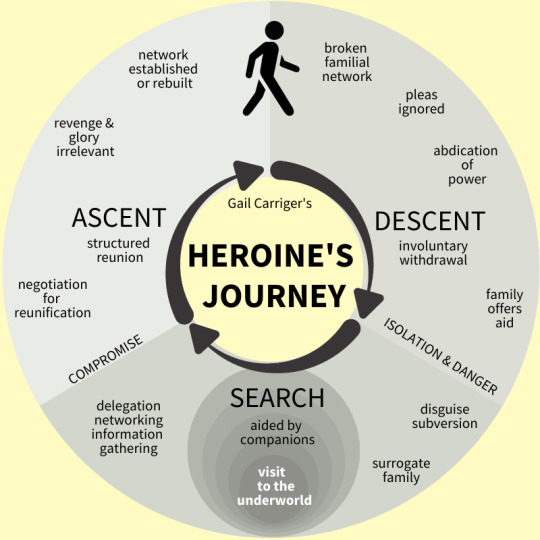
In her book, Gail notes that not every element has to be present to qualify a story as a Hero/Heroine's Journey and the events don't have to happen specifically in this order.
In the Heroine's Journey
The heroine's withdrawal is involuntary; something is broken and she must abdicate the power she had in order to rebuild, retrieve, or reunite with what was taken or broken.
Victory is a group effort; asking for help is a sign of strength; and the protagonist realizes that while she can't do everything herself, she has surrounded herself with people whose skills she can effectively deploy.
In the Heroine's Journey, the DESCENT is involuntary. Something is done to her or taken from her, and it breaks her familial network.
In ME2, obviously, uh, the thing that's taken from Shepard is her own life. Of course, instead of that being the end of the story, it's the inciting incident that leads to the involuntary withdrawal from her found family on the Normandy, her connection to the Alliance, and her Spectre status. Her home is literally destroyed. And then, kinda hilariously, she wakes up in the literal underworld. You know. Cerberus, dog that guards the gates of Hades?
I play a very Paragon Shepard and haven't played Renegade, so I can't speak to that. However, I can tell you that my Paragon Shep wakes up working for Cerberus and promptly proceeds to gain more Renegade points in the first couple of missions--hell, the first couple of conversations with Miranda, Jacob, and TIM--than she got in all of ME1.
Jacob: Do you trust me, Shepard? Shepard: NO, omg.
I've probably played ME2 five or six times with this Shepard, and she always strikes me as a bit off, a bit manic even, until she sees Tali. And she doesn't really start to settle or feel like herself until Archangel takes off his helmet, believes she is who she says she is, and without hesitation agrees to follow her into hell.
(As the protagonist in his own story, Garrus is also a heroine on a Heroine's Journey, by the by. Shepard's death breaks his network; C-Sec and the Council's denial of the Reapers leads to his abdication of power in the hunt for justice. His underworld is Omega. He puts together a surrogate family to fight injustice; he learns to delegate; he doesn't do it for glory... And then Sidonis's betrayal breaks the new family and sends him on another cycle. My theory, however, is that if you let him kill Sidonis, his journey takes on the revenge aspect of a Hero's Journey instead of the family and reunification structure of a Heroine's Journey.)
In ME2, the arc of recruiting an ally, earning their loyalty, and deploying their suggestions to improve the entire team's chances of survival is repeated over and over; this is the SEARCH of the cycle. And anyone who's ever tried to race their way through ME2 without doing all those loyalty missions or without scanning all those planets for resources finds out pretty quick why they're important.
So, while you potentially could race through ME1 without even recruiting several teammates (did you even know you can play that game without recruiting Garrus???), thereby making it much more of a Hero's Journey of the Strength of the Individual, you really can't do that in ME2 without massive casualties. You need the people around you. You need to build relationships. And you need to learn to delegate well, or things will absolutely fall apart during the end run.
Even the stated mission of ME2 is more Heroine's Journey. You're not fighting for glory; in fact, most of the people who used to be in awe of you now think you're a crazy terrorist. You're fighting to stop what's happening to human colonists.
The end run is so satisfying specifically because it leans in to the Heroine's Journey of information gathering and network building. You cannot beat the game as a solitary soldier. You cannot achieve a good outcome--minimal deaths, etc.--without having spent a lot of time and effort gaining the loyalty of your crew and then knowing how to deploy them to best serve the whole team.
ME2 is a story about finding and building a family after the last one is broken.
And though it's a whole other can of worms, I actually think the reason why the ending of ME3 was ultimately so unsatisfying for so many (again, not all) is because the majority of the game is once again a Heroine's Journey--team building and information gathering across the galaxy--but the endgame pulls the expected narrative out from under you. Instead of actually using the resources you've so carefully built, you're quite literally beamed up into complete isolation (weakness) and left to make a choice in isolation. It breaks the narrative promise that's been set up since the beginning of the game. And, whether you realize it or not, that's a huge part of why that lonely choice feels so hollow. Instead of a structured reunion and a rebuilt network, it's actually the broken family and involuntary descent that heralds the beginning of a new Heroine's Journey--not the the end of a successful one.
Also, incidentally? It's Heroine's Journeys that usually get satisfying instead of distracting-the-hero-from-his-real-mission romance, banter, fully realized side characters, and humor.
#mass effect#the heroine's journey#mass effect meta#commander shepard#garrus vakarian#turns out i love heroine's journeys much much more than i like hero's journeys#long text post#story structure#narrative structure#and this is why we get mad when stories don't meet the expectations they've set up#i could talk about this forever but i have a yoga class to get to asap
225 notes
·
View notes
Text
Finished reading all the different stages of the journey in Vogler’s The Writer’s Journey. Feels weird to say as someone who has read a lot of books, took some literature classes and was overall exposed to a lot of stories through movies, TV shows and video games, but it helped me better understand story structures (and that it’s also ok to deviate from that specific structure if the story calls for it).
Wasn’t sure if that book would help me when I bought it, but so far, I have zero regrets.
#(JC should have read that book… would have probably helped in making HPHM more coherent)#mizu musing#christopher vogler#the writer’s journey
2 notes
·
View notes
Text
A common Resurrection moment in fairy tales involves a last-minute threat to a hero who has gone on a quest to achieve impossible tasks. As he stakes his claim on the princess or the kingdom, a pretender or false claimant suddenly steps forward questioning the hero's credentials or claiming that he, not the hero, achieved the impossible. For a moment it looks like the hero's hopes are dead. To be reborn, the hero must provide proof that he is the true claimant, perhaps by showing the ears and tail of the dragon he slew, perhaps by besting the pretender (the Shadow) in a contest.
Christopher Vogler, The Writer's Journey
Examples of the false claimant abound in the music industry: Jack Antonoff on the latest Bleachers album, here and there on St. Vincent's All Born Screaming. Generally any asshole out there talking loudly about fire with no actual knowledge of fire. Colossal assholes: boygenius.
1 note
·
View note
Text
The Sting
Identify your mark, stack the deck, and know your escape route. This is the hero’s journey of The Sting. Side Quests Elixirs Dan’s Elixir: Gordon’s Bourbon, Straight Jeff’s Elixir: Old Fasioned 2 oz. Ezra Brooks 99 Bourbon 1/4 tsp. simple syrup Orange peel Bourbon cherry
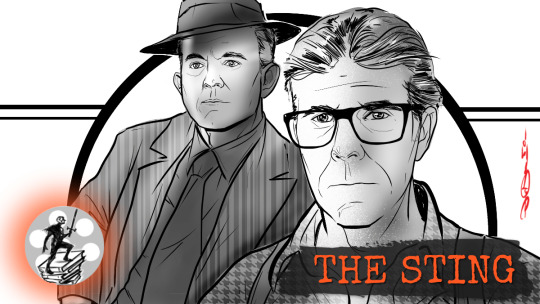
View On WordPress
#christopher vogler#film#films#hero’s journey#joseph campbell#monomyth#movies#mythology#story structure
3 notes
·
View notes
Text




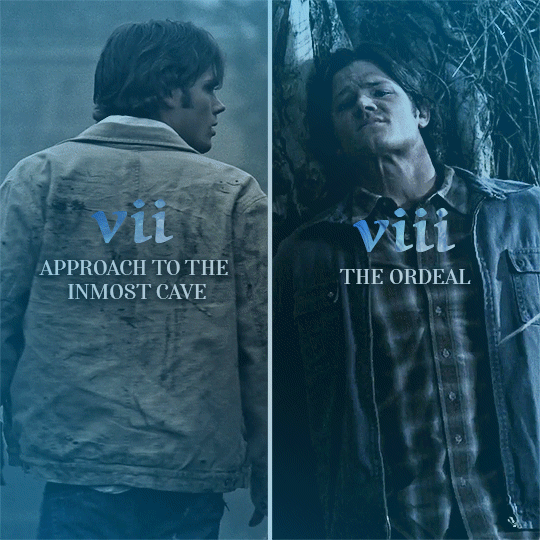
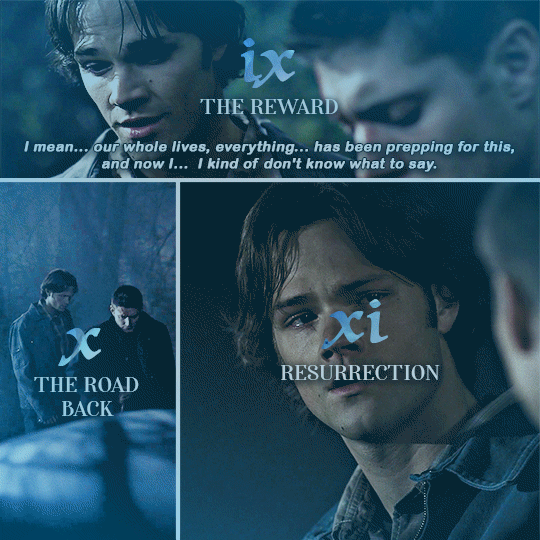

sam winchester + christopher vogler's the hero’s journey in seasons 1 & 2 [in/sp]
Sam is that very classic Joseph Campbell [hero] with the prophecy and all that. - Eric Kripke
#supernatural#spn#sam winchester#spnedit#supernaturaledit#samwinchesteredit#spnsamwinchester#*#so many links in the caption lol but further reading and inspiration if anyone is interested!
454 notes
·
View notes